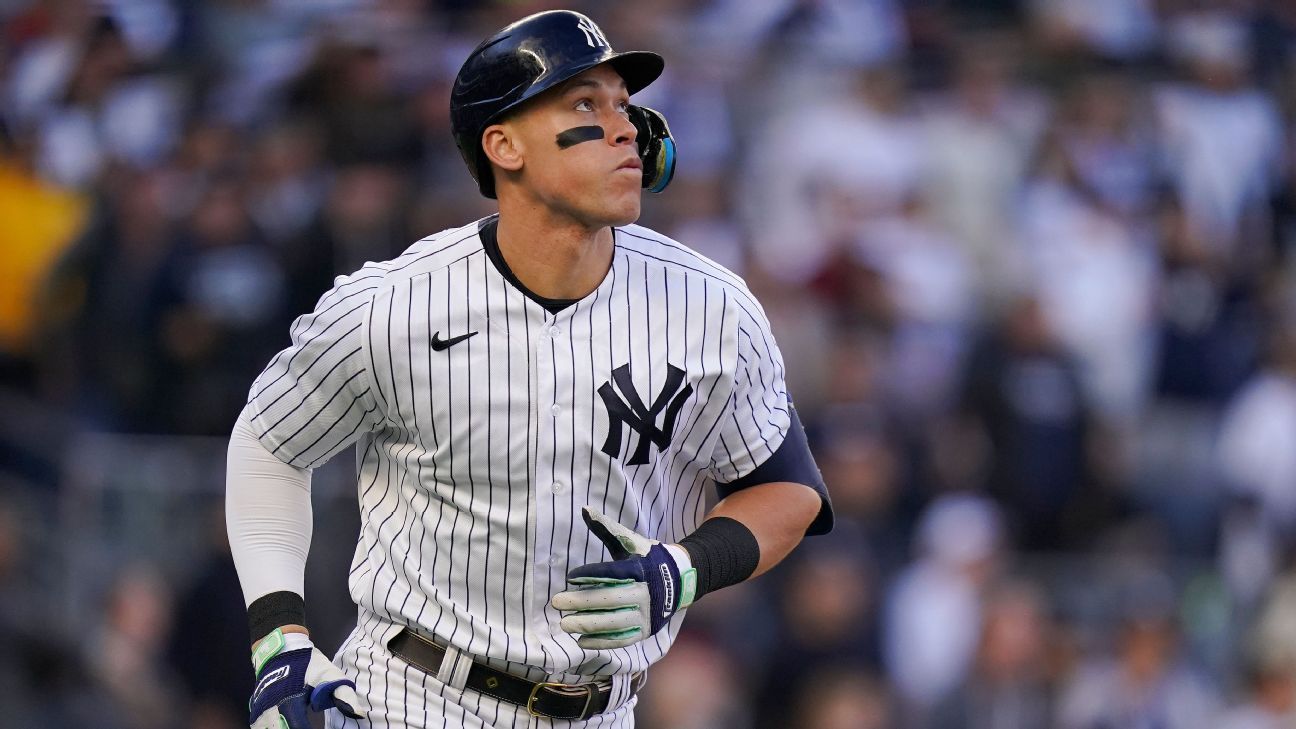
BENEATH THE PINSTRIPED No. 99 uniform, behind the home runs and the good-natured smile and the perfect soundbites emitted day after day during Aaron Judge's historic season, New York Yankees staffers knew he harbored at least some anger. But they did not know the depth of his resentment, which came spilling out last week as Judge neared a decision about whether to return to the Bronx. That timing was one more plot twist, after weeks and months of uncertainty.
On the eve of the 2022 campaign, the Yankees had offered Judge $213.5 million over seven years, a deal that would've made him the second-highest-paid outfielder in the majors, behind Mike Trout. To club executives around baseball, and even to some agents and union staffers, it was a fair offer for a player who will turn 31 in April.
Judge, just seven months from free agency, turned down the proposal. Yankees general manager Brian Cashman then outlined the offer for reporters in the Yankee Stadium press room, citing the reality that the numbers would inevitably emerge through anonymous sources. Later that same day, Judge indicated to reporters he was displeased with Cashman's revelation but didn't really elaborate.
Last week, however, as baseball's winter meetings began in San Diego with everyone wondering where Judge would sign, Time magazine -- which named Judge its Athlete of the Year -- published an interview with the slugger, in which Judge revisited the spring negotiations. "We kind of said, 'Hey, let's keep this between us,'" Judge told the magazine. "I was a little upset that the numbers came out. I understand it's a negotiation tactic. Put pressure on me. Turn the fans against me, turn the media on me. That part of it I didn't like."
At a time when the Yankees were trying to convince Judge to come back, his now-publicly stated offense at the circumstances landed hard in the Yankees' suite of club officials.
"I had that feeling that we were going to lose him," said a Yankees official, one of some two dozen industry sources interviewed about Judge's negotiations with both New York teams and with his other top suitors -- the San Francisco Giants and San Diego Padres -- and others around MLB.
In the end, Judge elected to return to the Yankees on a nine-year, $360 million deal that all but ensures he'll finish his career with the team that drafted him. Soon, the contract will become official, and he'll be reintroduced at a Yankee Stadium news conference.
And looking back, it would be easy to say that the rival executives who consistently predicted that Yankees owner Hal Steinbrenner would never let one of the game's most prominent superstars get away were right all along. But that's not how it felt to those involved in the talks.
As it turned out, Judge's stoic personality served as negotiating leverage. Judge was the poker player who stayed on point, never changed expression and rarely betrayed emotions -- and in the end, he won big.















 Phone: (800) 737. 6040
Phone: (800) 737. 6040 Fax: (800) 825 5558
Fax: (800) 825 5558 Website:
Website:  Email:
Email: 






